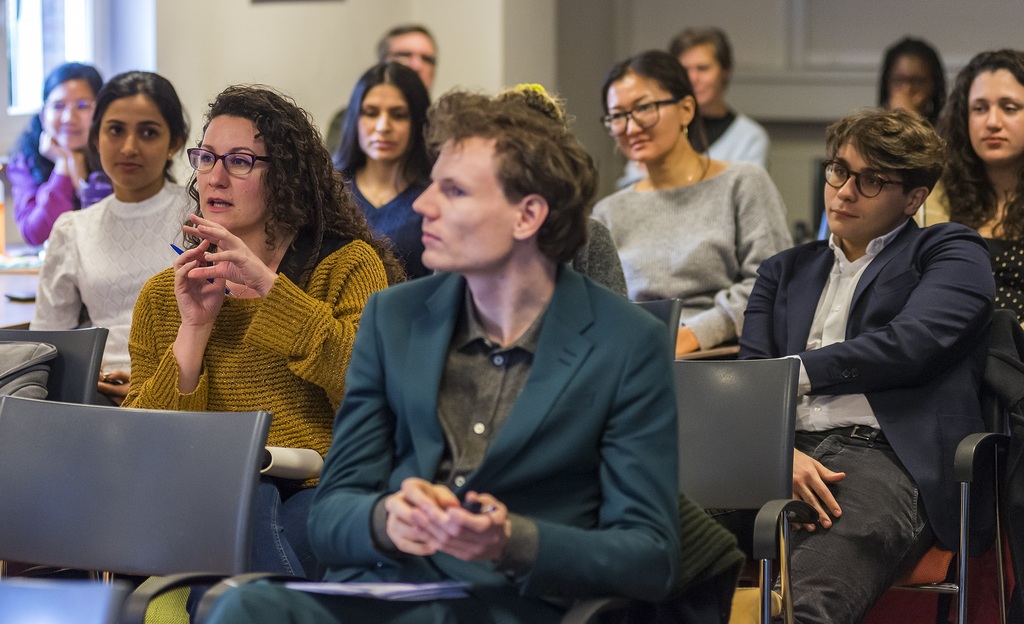Introduction
Our PhD programme on Innovation, Governance and Sustainable Development (IEGSD) offers high-quality education, training and supervision to our PhD candidates, leading to a doctoral degree from Maastricht University.
Through our disciplinary and multidisciplinary research, our ambition is to contribute to the academic debate and to societal policy and innovation solutions at all stages of the policy process: from the policy agenda setting to the delivery and evaluation of public policy.
In meeting these aims, we ensure that our research maintains the highest standards of academic and scientific excellence and rigour, while remaining policy relevant.
The PhD programme is part of the UNU-MERIT Graduate School and hosts over 100 PhD fellows working on a doctoral dissertation within the core disciplines of UNU-MERIT:
- The economics of innovation — Topics of interest include: the process of technological change and innovation; the economics of knowledge and new technologies; structural change and economic development; economic complexity and innovation.
- Public policy and governance — Topics of interest include: governance and institutions; migration and development; population, development and labour economics; social protection; poverty and inequality; policy analysis and evaluation.
- Societal transformations — Topics of interest include: innovation and entrepreneurship for sustainable transitions; sustainable innovation and transformation; system transitions; innovation for the ‘base of the Pyramid’.
Full-time track
Typically attracting fellows as residents to Maastricht to work most of their time (0.8-1.0 FTE) on their PhD research, funded by a UNU-MERIT fellowship, an external grant or scholarship, or an employment contract..

Dual career (part-time) track
Typically attracting professionals and researchers with full- or part-time jobs that allow them to combine their careers with obtaining a PhD. They secure their own funding and work mainly on their dissertation from the country where they live and/or work and come to Maastricht at least twice a year for training and interaction with peers and supervisors.
PhD positions and programmes at UNU-MERIT
There are several types of PhD positions within UNU-MERIT, and Maastricht University more broadly, depending on the type of funding (with an employment contract from Maastricht University, through a research grant or fellowship or using other external sources of funding) and the time available for the doctoral research (full-time or part-time, in combination with work responsibilities). See also PhD information from Maastricht University.
Salaried PhD positions at UNU-MERIT are less common, but not excluded, and are mainly recruited by way of externally funded projects. Vacancies are therefore usually only advertised when a professor has obtained an external grant and the topic of the PhD dissertation is more or less fixed. In coordination with the PhD programme director, these fellows can be allowed to participate in one of the PhD programmes in a flexible manner, depending on their time available for PhD research and training needs.
To accommodate the need for a large community of scholars active in the core areas of the institute and the increasingly hybrid type of PhD positions held to conduct the PhD trajectory, the UNU-MERIT PhD programme is composed of two different PhD tracks, each appealing to PhD fellow profiles with different education and supervision needs, funding alternatives and time involvement.
Application deadlines and important dates for the next academic year (2024-25)
Both programme tracks start in September and so the next cohort will begin in September 2024. Applications are now open, with a deadline of 15 February 2024. Applications are invited from highly-motivated and talented fellows, especially from the Global South, who want to join a thriving and collaborative community of scholars focusing on pressing global challenges, including migration, climate action, the digital transformation, poverty and inequality, and particularly their impact on human and economic sustainable development.




